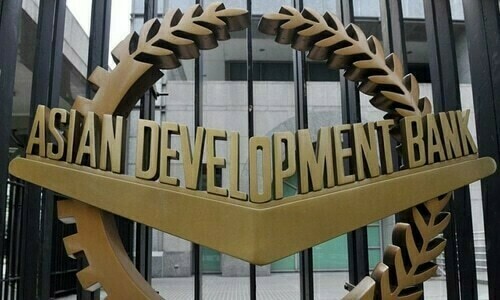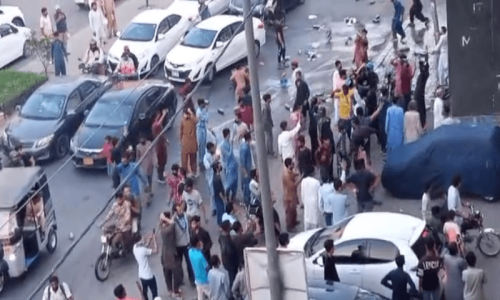KABUL: Afghans flocked to mosques on Friday to mark Eidul Azha as a three-day ceasefire between Taliban and government forces began, with many hoping it would lead to peace talks and the end of nearly two decades of conflict.
The truce appeared to hold across the country throughout the day, though an unclaimed car bomb that killed at least 17 people the night before highlighted Afghanistan’s underlying volatility.
The halt in fighting is slated to last for the duration of Eid and is only the third official truce in nearly 19 years of war.
“We want a permanent ceasefire from the Taliban as they are the ones who paved the way for other terrorist groups to operate in Afghanistan,” Mohammad Tahir, a taxi driver, said after praying at a Kabul mosque.
As the ceasefire commenced, crowds of worshippers went to mosques across the capital where they were patted down by armed guards before going inside.
President Ghani says 500 prisoners to be released during the festival
Worshippers also offered Eid prayers at mosques in the eastern city of Jalalabad which has seen many deadly attacks over the years.
“Previously, we were not attending Eid prayers in large numbers for fear of suicide attacks,” Jalalabad resident Wala Jan said after praying at a local mosque.
In Kandahar city in the south, which is surrounded by Taliban-held terrain, thousands of people prayed in mosques.
There were no immediate reports of major fighting across the country.
500 prisoners
President Ashraf Ghani and the Taliban have both signalled that peace talks could begin straight after Eid, and there are widespread calls for the warring parties to extend the ceasefire.
Under a deal signed by the Taliban and the US in February, “intra-Afghan” talks were slated to start in March, but were delayed amid political infighting in Kabul and as a contentious prisoner exchange dragged on.
That swap will see Kabul free 5,000 Taliban fighters, while the insurgents claimed late on Thursday they had fulfilled their pledge to release 1,000 government forces.
In an Eid speech, Ghani said another 500 prisoners would be released during the festival in a bid to “accelerate the peace talks”.
However, the 500 inmates are not on the original list of 5,000 demanded by the Taliban. Kabul authorities have already freed 4,600 of those prisoners but are hesitating over the final 400, deeming them too dangerous.
Ghani said he did “not have the right” to take a decision on the release of the 400 who are accused of “serious crimes” — including sexual violence, robbery and stoning women to death — adding that a gathering of Afghan elders would decide their fate.
The Taliban, who have insisted on the release of those 400 militants, did not immediately comment.
US special envoy Zalmay Khalilzad, who led negotiations with the Taliban, is currently visiting regional players including Ghani in Kabul to push for a ceasefire extension.
Since signing the February deal, the Taliban have largely refrained from attacking cities and have not hit US troops. But they have conducted near-daily attacks on Afghan forces and civilians.
Highlighting the recent toll, Ghani this week said more than 3,500 Afghan troops and nearly 800 civilians had been killed since the deal was signed.
The UN Assistance Mission in Afghanistan has blamed the Taliban for the bulk of civilian casualties during the first half of 2020.
“We want extension of ceasefire so that bloodshed ends... We have suffered from the conflict for the last 40 years,” Sharif Ahmad, a shopkeeper, said after offering Eid prayers.
Many Afghans are leery about what comes next. After two previous ceasefires — in 2018 and May this year — the Taliban immediately returned to the battlefield.
“The Taliban can’t be trusted because they announce ceasefire for Eid and after Eid they step up attacks,” said Kandahar resident Anwaruddin, 40.
“If the Taliban were serious, they should have entered talks with Afghan government months ago.”
Thursday’s car bomb exploded as crowds shopped ahead of Eid in the city of Puli Alam in Logar province.
The Taliban said they had “nothing to do” with the blast.
Published in Dawn, August 1st, 2020















































